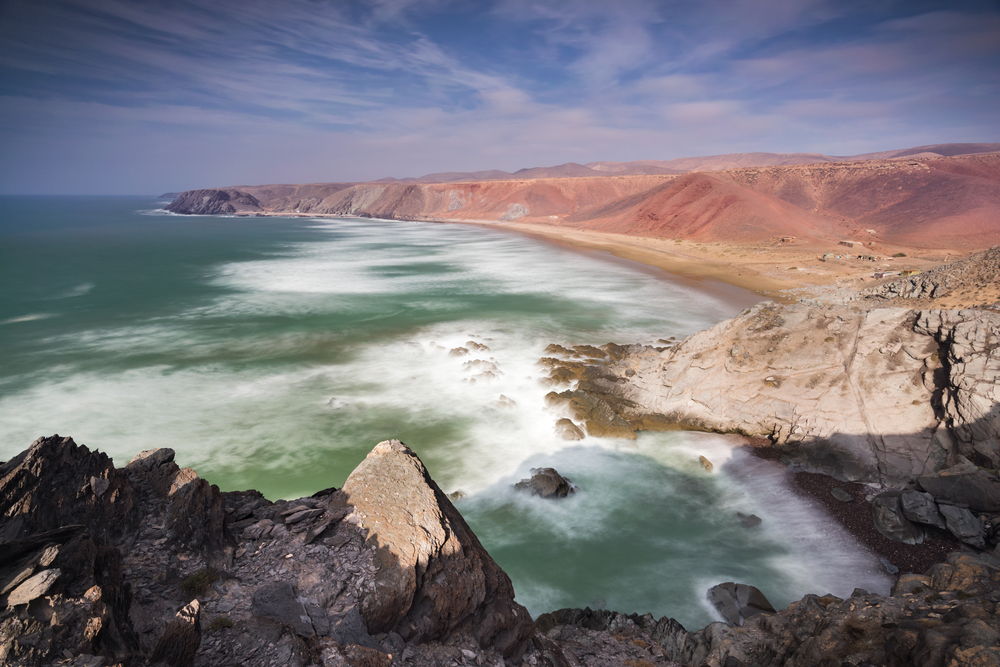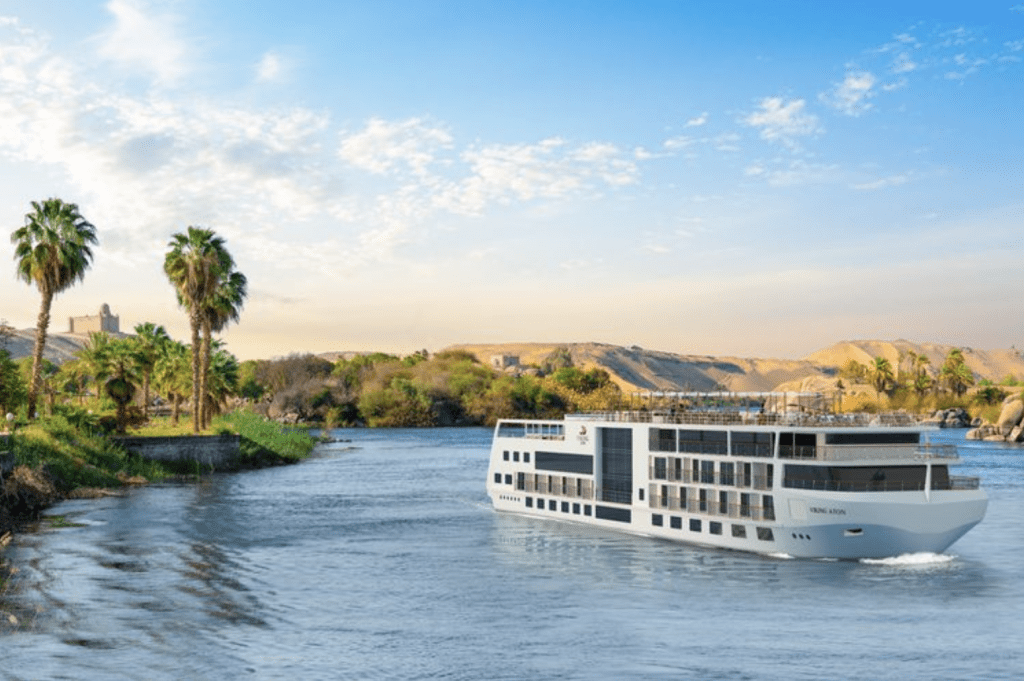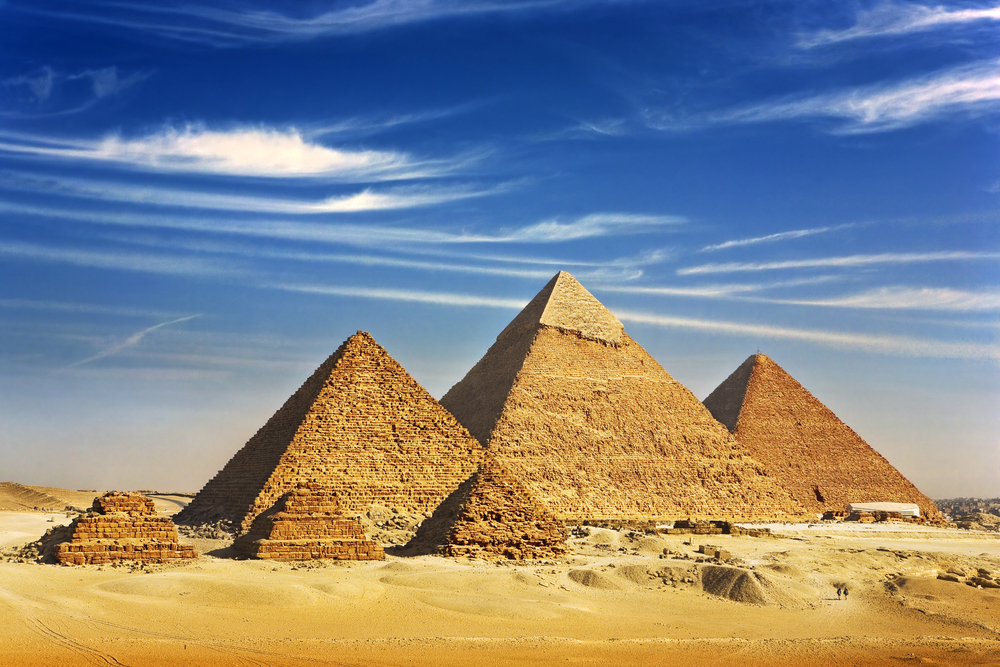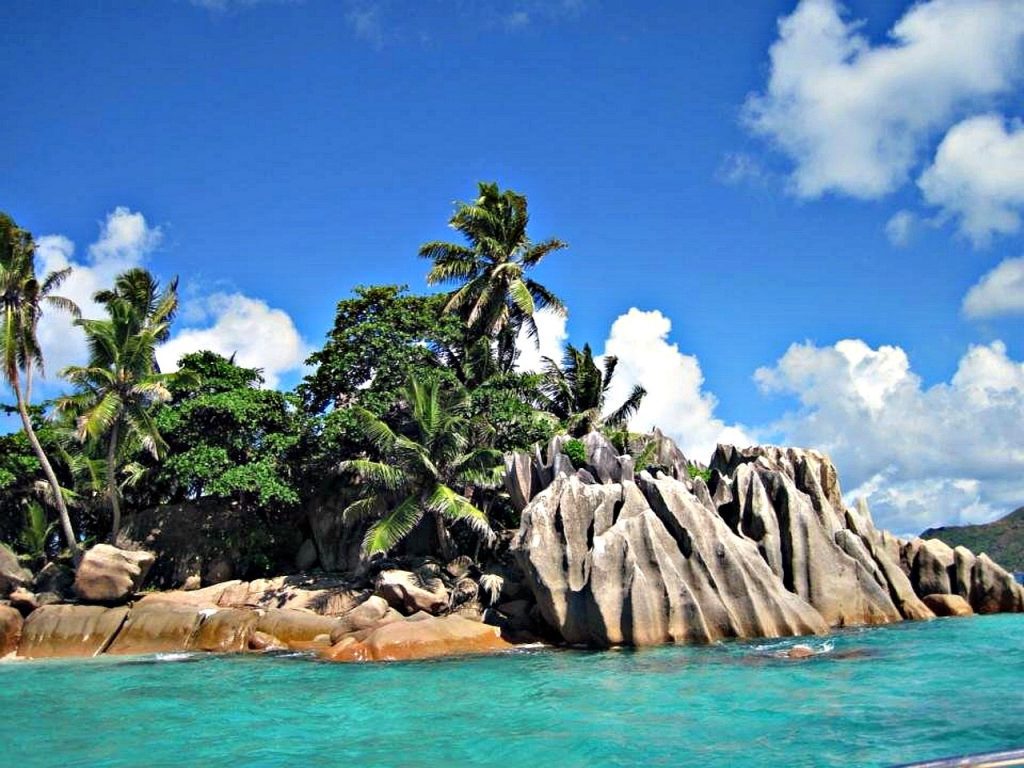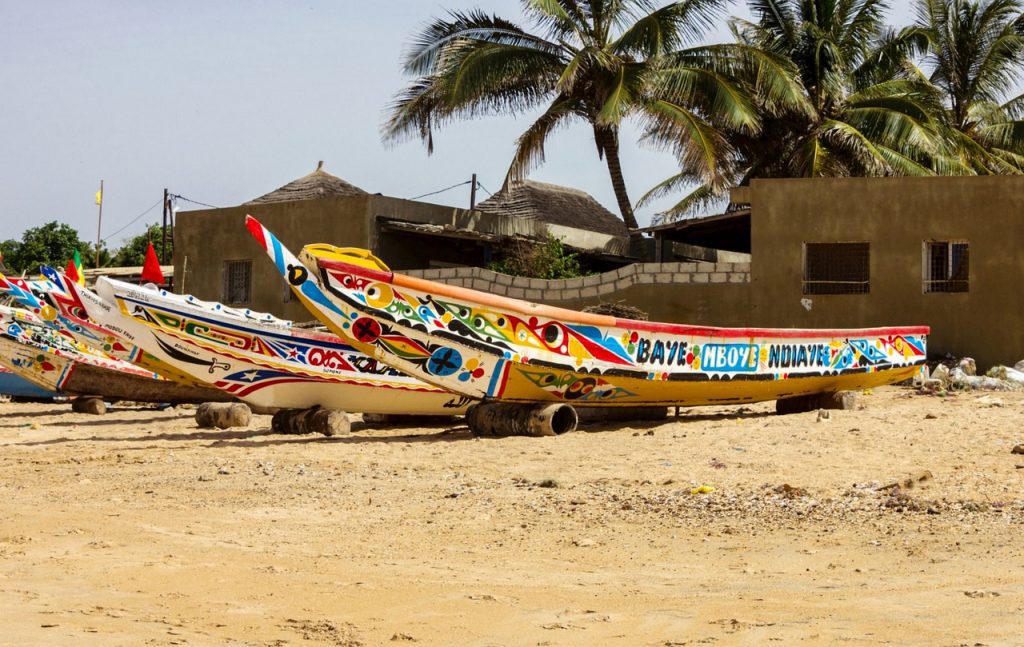Morocco is a country featuring vibrant markets, striking desert landscapes while possessing a rich history that promises an array of experiences for travelers. However, selecting the best time to visit Morocco to explore this captivating country requires consideration of multiple factors.
Let’s explore the weather, crowds, cultural experiences, and nature adventures to help determine the best time to go to Morocco. Personal preference will always be the most important factor. However, the insights below can help guide your planning.
Exploring Morocco based on Weather
Morocco’s climate varies across its regions, offering a diverse range of climates to consider. For milder temperatures and comfortable exploration, the best time to visit is during the cooler months from March to May and September to November. During these periods, temperatures generally range from 60-75°F (15-24°C), making it ideal for sightseeing and outdoor activities.
Morocco’s climates are diverse due to its geographical location and topography. The best time to visit Morocco depends on the region you plan to explore and your preferred weather conditions. Here’s a description of the seasonal weather in Morocco:
Coastal Areas (Casablanca, Rabat, Essaouira):
- Mild and Mediterranean Climate:
- Coastal regions enjoy mild temperatures, with highs ranging from 64°F (18°C) in winter to 86°F (30°C) in summer.
- Although many people consider the country’s desert region, the coastal area is quite nice and attracts many tourists.
- Year-Round Travel:
- Coastal areas offer comfortable weather throughout the year, making them suitable for travel at any time.
Atlas Mountains (Marrakech):
- Variable Climate:
- Marrakech has hot summers with highs around 95°F (35°C) and cooler winters with highs of 64°F (18°C).
- If you trek up into the mountains, you can expect the cooler side of these temperatures.
- Spring (March to May) and autumn (September to November) are the ideal seasons to visit Marrakech due to pleasant temperatures. The summer months can also be quite toasty.
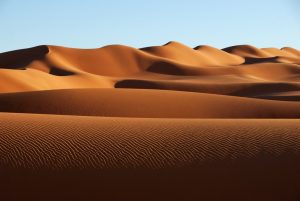 Sahara Desert (Merzouga, Zagora):
Sahara Desert (Merzouga, Zagora):
The Sahara Desert is renowned for its extreme temperatures. It is hard to imagine something so dry and arid going from blistering hot to freezing temperatures.
-
- The Sahara experiences extremely hot summers with highs exceeding 104°F (40°C) and cold winters with nighttime temperatures dropping to 32°F (0°C) or lower.
- This makes the shoulder season months more enjoyable based on the weather.
- The best time to visit Morocco for exploring the Sahara Desert is during the cooler months of autumn (October to November) and spring (March to April) when daytime temperatures are more bearable for desert adventures.
High Atlas Mountains (Imlil):
- Cooler and Alpine Climate:
- Fahrenheit: In the higher elevations of the Atlas Mountains, temperatures can drop significantly, with winter highs around 41°F (5°C) and summer highs around 77°F (25°C).
- The best time to explore the High Atlas Mountains is during the summer months when the weather is more comfortable.
Desert and Mountain Regions:
- Rainfall:
- Most of Morocco experiences very little rainfall throughout the year, but the coastal areas, particularly in the northwest, can receive more rain during the winter months.
Ramadan:
- Cultural Consideration:
- Note that Ramadan, the Islamic holy month of fasting, can affect travel plans in Morocco. Some businesses may have reduced hours, and it’s important to be respectful of local customs during this time.
In summary, the best time to visit Morocco depends on your interests and the regions you plan to explore. Coastal areas and cities like Marrakech offer year-round travel opportunities, while the Sahara Desert is more comfortable to visit in the cooler seasons.
Spring and autumn are generally considered the best time to go to Morocco for traveling with pleasant temperatures and minimal rainfall.
Weather to Avoid
The scorching heat of summer (June to August) should be avoided, with temperatures often exceeding 100°F (38°C) and sometimes climbing even higher. The intense heat can make outdoor excursions uncomfortable and limit your ability to fully appreciate Morocco’s offerings.
Visiting Morocco based on Crowds
The best way to enjoy Morocco’s wonders without the crowds, consider planning your visit during the shoulder seasons of spring (March to May) and fall (September to November). These months offer a more serene atmosphere, allowing you to explore the country’s cultural and natural treasures more comfortably.
The summer months are often busier with western tourists who turn to travel explorations during the months between June and August. These months are both busier and hotter making them less than ideal for travel.
Discovering Morocco’s Culture
Engaging with Morocco’s rich culture is a highlight of any visit. Participate in local festivals, savor traditional cuisine, and immerse yourself in Moroccan hospitality. Events like the Fes Festival of World Sacred Music in May and Marrakech International Film Festival in November/December offer authentic glimpses into the country’s vibrant traditions.
Morocco boasts a vibrant array of cultural events that provide a glimpse into its rich heritage and traditions. Here are 10 of the most iconic annual cultural events that take place across the country:
- Fes Festival of World Sacred Music – Fes (May/June): The Fes Festival of World Sacred Music, held in May/June, is a renowned event that brings together musicians and artists from around the world. It celebrates various forms of spiritual music, promoting intercultural dialogue and artistic exchange.
- Marrakech International Film Festival – Marrakech (November/December): The Marrakech International Film Festival, typically in November/December, is a prestigious cinematic event that showcases international and Moroccan films. It attracts renowned filmmakers, actors, and cinephiles from around the world.
- Rose Festival in Kelaa Mgouna – Dades Valley (May): The Rose Festival in Kelaa Mgouna, celebrated in May, marks the blooming of roses in the Dades Valley. It features vibrant parades, local music performances, and a joyful celebration of the region’s rose industry.
- Timitar Festival – Agadir (June/July): The Timitar Festival in Agadir, held in June/July, is a celebration of Amazigh (Berber) and international music. It showcases a diverse range of musical performances, reflecting the cultural tapestry of Morocco.
- Moussem of Tan-Tan – Tan-Tan (October): The Moussem of Tan-Tan, celebrated in October, is a unique nomadic festival in the southern desert region. It features traditional dances, music, camel races, and a lively atmosphere that encapsulates the spirit of nomadic culture.
- Eid Al-Fitr and Eid Al-Adha – Islamic Calendar: Eid Al-Fitr and Eid Al-Adha are two major Islamic festivals celebrated in Morocco. Eid Al-Fitr marks the end of Ramadan, and Eid Al-Adha commemorates the willingness of Ibrahim (Abraham) to sacrifice his son as an act of obedience to God.
- Gnaoua World Music Festival – Essaouira (June): The Gnaoua World Music Festival, held in June in Essaouira, celebrates Gnaoua music and its fusion with world music genres. It features performances by Gnaoua masters and international artists in a coastal setting.
- Imilchil Marriage Festival – Imilchil (August/September): The Imilchil Marriage Festival, taking place in August/September, is a traditional Berber event where young people from various tribes gather to find potential partners. The festival is a unique cultural experience showcasing Amazigh traditions.
- Festival of the Sahara – Rissani (October): The Festival of the Sahara in Rissani, celebrated in October, is a captivating event that highlights Saharan culture through music, dance, camel races, and traditional performances. It provides a window into the desert way of life.
- Almond Blossom Festival – Tafraoute (February/March): The Almond Blossom Festival in Tafraoute, held in February/March, celebrates the blossoming of almond trees in the Anti-Atlas Mountains. The event features traditional dances, cultural exhibitions, and local crafts.
These iconic cultural events offer a remarkable opportunity to immerse yourself in Morocco’s diverse heritage, artistic expressions, and festive celebrations. If you’re planning a visit to Morocco, consider aligning your travel dates with these extraordinary festivals to experience the country’s vibrant culture firsthand.
Exploring Morocco’s Wilderness & Nature Experiences
For desert adventures and outdoor escapades, the cooler months of fall (September to November) and spring (March to May) provide the best conditions. The milder temperatures make activities like camel trekking in the Sahara or hiking in the Atlas Mountains more enjoyable.
You can engage these activities during the summer months of June through August, but expect temperatures to be miserably hot. If the calendar freedom allows you to explore the region at any time, then you will want to leverage the spring or fall to truly enjoy the outdoors more comfortably.
Other Essential Timing Considerations:
- Ramadan: Be mindful of Ramadan, the Islamic holy month of fasting, observed by Muslims. Respectful behavior, such as refraining from eating, drinking, and smoking in public during daylight hours, is essential.
- Eid Al-Fitr: Eid Al-Fitr marks the end of Ramadan and is celebrated with festive gatherings and feasting. The date varies each year based on the Islamic lunar calendar.
- Moroccan New Year (Yennayer): Celebrated in January, Yennayer marks the Amazigh (Berber) New Year. It’s an opportunity to experience Amazigh culture and traditions.
In conclusion, the best time to visit Morocco hinges on your preferences and the experiences you seek. Whether you’re captivated by cultural festivals, desert landscapes, or ancient medinas, Morocco offers a multitude of possibilities throughout the year. By evaluating these factors, you’ll be well-prepared to embark on a memorable Moroccan adventure tailored to your desires and the country’s offerings.

